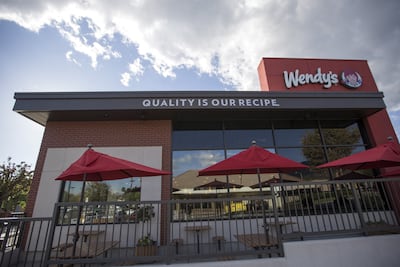Few things are more annoying than sitting next to someone on a plane who is boasting about how much less they paid for their seat than you did.
Don't feel too bad – you've probably just experienced surge pricing. Your fellow passenger booked and paid for their ticket when demand was much lower than when you did, and the airline simply adjusted the price accordingly.
It's a common practice among airlines and hotels, and we are all familiar with the concept of “peak” and “off-peak” tickets, be they seasonal or even relating to times of the day.
Surge pricing, or dynamic pricing, is expected to become commonplace everywhere from cinemas and theme parks to supermarkets and restaurants.
It is arguably as old as economics itself – prices are flexible and are set according to the current demand in the market. As demand for a product surges, so too does the price.
The UK's largest theme park operator, Merlin Entertainments, announced this week that visitors to the likes of Legoland and Madam Tussauds will be subject to surge pricing. They will pay higher prices on public holidays and lower prices on weekdays.
Merlin Entertainments' revenue jumped 8 per cent to £2.1 billion ($2.6 billion) last year, and one in four visitors to London went to one of its attractions.

The company had a particularly rough time during the pandemic because of its reliance on international visitors, and using surge pricing is a savvy business way to improve its profitability.
So, if demand is not as high as predicted on a warm summer's day, prices can drop immediately. Likewise, if demand surges on a wet day in November, prices will adjust appropriately, providing true flexibility to the company's pricing model.
Merlin Entertainment said in a statement that such a pricing structure “makes sure that the peak period experience is optimised by avoiding overcrowding”.
The company also argued that surge pricing affords visitors to its attractions greater choice over when they come and how much they pay.
“This approach clearly works because our guest satisfaction is at an all-time high,” a spokesperson for Merlin said.

“Surge pricing is just a form of price discrimination, which is endemic in our economy,” Professor Nick de Roos of Liverpool University told The National.
“In its pure form, it refers to the practice of selling two units of the same good at different prices. This could be to the same customer (for example, a quantity discount or buy two get one free) or to two different customers.
“Hotels and airlines are classic examples. Usually, the pricing practices of hotels and airlines are referred to as price discrimination, but the term 'surge pricing' seems to have become more common recently.”
Online search and travel company Skyscanner sees air fares like any other commodity – prices will be higher when demand is higher.
One hack the company recommends is booking on a Tuesday, because most airlines will launch their discounted seats on Monday night. Travellers can save 15-25 per cent on ticket prices by doing this.
“Air fare pricing is complex, and there are many factors that determine the cost, from the itinerary to the flexibility of the ticket and the cabin class,” Hugh Aitken, vice president for strategic flights and industry partnerships at Skyscanner, told The National.
“However, the key determining factor for the price paid is largely due to demand.”
Anyone who has taken an Uber is familiar with surge pricing. Demand for rides tends to increase during rush hour or when it is raining and people do not fancy getting wet waiting for a bus. When demand increases, so do the ride prices.
“Some riders will choose to pay, while some will choose to wait a few minutes to see if the rates go back down,” Uber says on its website.

It's the same principle that Scott O'Neil, the chief executive of Merlin Entertainments, was referring to when he said surge pricing will keep queuing times at attractions in check during periods of high demand. This is how the strategy helps “protect the guest experience”.
Flexible prices that react to demand make perfect business sense. They allows companies to minimise unused capacity and maximise unit profit.
But as technological advances allow dynamic pricing to expand across different sectors, some are wondering where its limitations might lie.
Limitations and downsides
Is there a point where surge pricing doesn't work?
Some argue that it occurs when the consumer feels ripped off and the transaction itself is not perceived as fair.
In 1986, three American behavioural scientists, Daniel Kahneman (who died this week), Richard Thaler and Jack Knetsch, stated in the American Economic Review that customers often found surge prices frustrating and annoying.
In their paper Fairness as a Constraint on Profit Seeking, the three academics, two of whom would go on to win Nobel Prizes, offered a group of participants the scenario of a hardware store that sold snow shovels for $15. But the morning after a snowstorm the store put up the price of the shovels to $20.
Most of the participants, 82 per cent, said it was “unfair for the hardware store to take advantage of the short-run increase in demand associated with the blizzard”.
However, the degree of acceptance of surge pricing very much depends on the product, the time and the place.

For example, when the US fast food restaurant chain Wendy's announced last month that it was considering introducing surge pricing, meaning its hamburgers would be priced at different levels at different times of the day, there was a severe backlash and social media was littered with calls for a boycott.
Wendy's rival, Burger King, tried to entice customers away with a reactive “no urge to surge” promotion.
However, as sure as a burger comes with fries, you can be guaranteed that many of those outraged consumers booked Uber rides or airline tickets that same day without a flicker of concern.
“That a company uses surge pricing itself may not be judged as unfair, depending on expectations,” Eric Dolansky, associate professor of marketing at Brock University in Canada, told The National.
“Norms play a huge role here: we expect fluctuating prices from airlines, gas stations and Uber, so we don't look at it as unfair. If Wendy's starts doing it, we bristle because food is not a sector in which we usually see this.”
Incentives and choices
Likewise, companies may try to placate customer outrage with seemingly valid reasons for using surge pricing.
Ticketmaster's dynamic pricing system came in for harsh criticism in 2022, after some tickets for shows by singer Harry Styles doubled in price. While fan groups complained of being ripped off, the company insisted surge pricing kept ticket touts out of the system.
“Like sports teams, artist representatives and promoters recognise the benefit of pricing tickets closer to market value,” Ticketmaster said in a statement to the BBC at the time.
And while consumers may baulk at some surge pricing, Prof de Roos believes there's a limit to how much power they have.
“If price discrimination or surge pricing is well designed, an individual consumer will not have an incentive to shop elsewhere,” he told The National, “and we would expect that pricing practices would become increasingly well designed, with better data and information-processing tools.
“However, if consumers are able to co-ordinate their behaviour, then this could have an impact.”
But there are also tales of co-ordinated behaviour exploiting loopholes in the surge pricing system to the detriment of consumers.

Last year, Australian magazine Drive claimed there was evidence that groups of Uber drivers had colluded to log off the app in certain areas at certain times, thereby reducing the number of available rides and creating a false spike in demand.
“And when the prices start to surge, they all log back on – usually once it’s past double or triple the normal fare, and off they go, they clean up,” one anonymous driver told the magazine.
Nonetheless, much of the consumer opposition to surge pricing, such as it is, usually comes down to transparency and a perceived lack of information.
Economic theory stipulates that price discovery (the ultimate price that a seller and buyer settle on before a transaction is made) is enhanced in markets where there is transparency. In other words, the buyer and seller have a high degree of market information.
The trouble is, in most retail transactions the consumer has far less information than the seller.
For example, a supermarket will have a much clearer picture of the demand for chipotle chilli pepper than its customers.
With the advent of technology such as electronic shelf tags and stock control AI, if demand spikes the supermarket can increase the price of the pepper in less time than it takes to sneeze.
Indeed, the change could be so quick and so subtle that the customer probably will not even notice.

“Surge pricing will likely become more sophisticated,” Prof de Roos said, “or at least, the automation of surge pricing will likely be more sophisticated.
“What is new is the combination of sophistication and automation, with the potential for widespread deployment.
“Consumers should expect surge pricing to play an important role going forward.”



